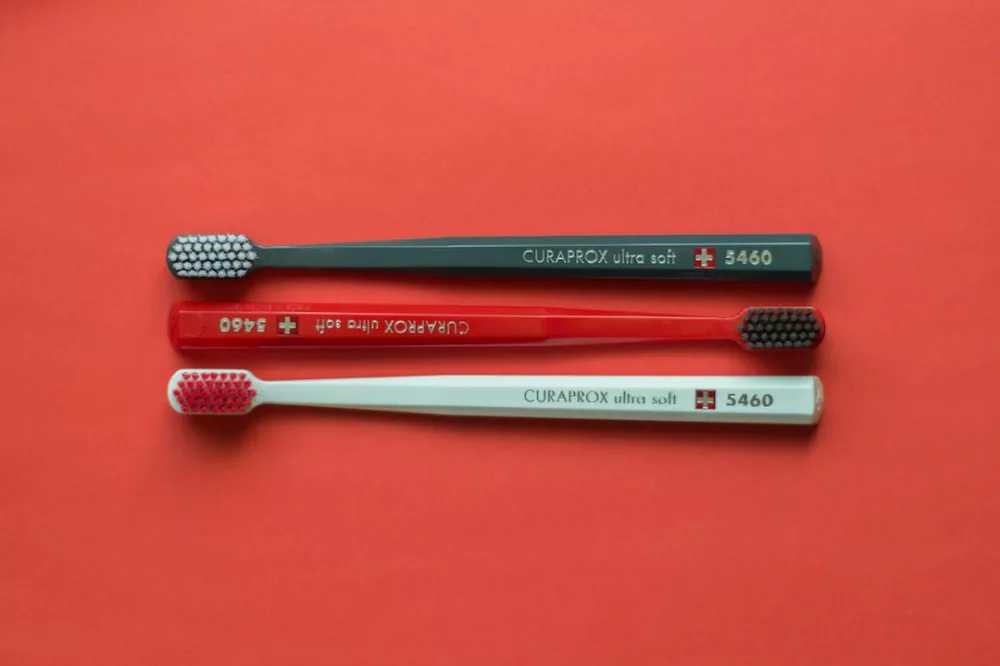Nylon or Brass: What’s the Best Material for Gun Cleaning?
Got a gun? Want to keep it in top shape? Cleaning it regularly is key. But what material should you use? Nylon or brass? Read on for the answer!
Introduction: Why it’s important to choose the right cleaning material for your gun.
When it comes to cleaning a gun, the right material matters! Nylon and brass are two popular choices. Nylon brushes are gentle and less likely to scratch delicate parts, like barrels and chambers. Brass brushes, on the other hand, have more stiffness which allows for a stronger scrubbing action – perfect for tackling stubborn fouling!
So, which one should you choose? It depends on the type of gun, its metal composition, and what kind of maintenance it needs. Field & Stream magazine recommends researching or consulting with gun experts to find out what works best.
High-quality cleaning solvents and oils are essential for both performance and safety. With the right cleaning material, your gun will stay in top shape and last for years to come.
Nylon: The pros and cons of using nylon to clean your gun.

Nylon cleaning brushes can be a good choice for firearms, but it’s essential to consider the pros and cons.
Benefits include:
- Less likely to damage the gun’s finish than other materials like brass.
- Affordable.
- Easy to clean.
However, they may not be as reliable as brass and need replacing more often. Also, different types of nylon brushes offer varying levels of stiffness. To get the most out of them, make sure to find ones appropriate for your firearm.
Whether to use nylon brushes is up to you. They are cheap and won’t harm the finish. But, if you want durability or superior cleaning, brass may be a better option. If you do opt for nylon, remember to keep them clean and replace them when necessary. That way you’ll keep your gun in optimal condition.
Brass: The pros and cons of using brass to clean your gun.
Clean your gun – it’s essential! Brass and nylon are popular for cleaning. But, is brass the best option? Let’s take a look at the pros and cons.
Brass:
- Pros:
- Durable
- Effective on tough residues
- Reusable
- Cons:
- Hard bristles can scratch
- May leave debris
- Not suitable for delicate parts
Note: Not all firearms can handle brass brushes. Check with your gun manufacturer or a professional.
Weigh the pros and cons. Maintenance is important – don’t let neglect take over. Be a responsible gun owner and clean your weapon regularly. Make the choice between soft or hard, nylon or brass!
Which is better? Nylon or brass for gun cleaning?
When it comes to gun cleaning, the material of the cleaning tools is key. Let’s compare Nylon and Brass to see which is best.
| Material | Pros | Cons |
| Nylon | – Non-abrasive
– Safe for delicate firearms – Lightweight & flexible – Resists chemicals | – Bristles wear out fast
– Not great for tough dirt |
| Brass | – Strong & durable
– Good for stubborn dirt – Gives superior clean to nylon | – Can scratch sensitive parts
– Harsh on finishes – Not good for delicate guns |
Nylon brushes are good for preventing scratches on delicate surfaces. But they may not be as good for tough grime on barrels, actions, or chambers. Whereas brass brushes can efficiently remove build-up from hard-to-reach corners. But they can be too harsh for some firearms.
It depends on your gun needs. Nylon is better for delicate firearms with sensitive finishes. But brass is good for tough dirt. The right solvent also matters. Many don’t work with nylon scrubbers.
Choose nylon or brass, depending on whether you want to clean your gun or polish it like a trophy. Good storage, maintenance, and the right tool can keep your guns in top shape for years.
How to clean your gun with nylon or brass.
Clean your gun for proper maintenance. To avoid any damage, choose the right cleaning brushes. Nylon and brass are two materials often used. Let’s figure out which is better.
Safety First! Before you start, make sure there are no bullets in the chamber or magazine. Wear glasses to protect your eyes.
Use bore solvent to remove residue. Attach it to a patch holder with cotton patch. Run a bore brush through the barrel a few times.
Choose between nylon or brass brushes. Brass is softer and won’t scratch or damage metal surfaces. Nylon is gentle and can scrub away dirt without damaging it.
Attach brush to cleaning rod. Dip it in bore solvent and scrub all parts – barrel, bolt, receiver, magazine tube, and chamber walls.
Rinse all components with running water or warm soapy water. Wipe them dry with clean cloth or patches.
Add oil to metal components to prevent rusting.
Nylon brushes are great for cleaning sensitive surfaces, but brass is more durable and can remove stubborn dirt. Be aware that Nylon brushes can damage finishes. Follow manufacturer instructions for best results.
Tips for keeping your gun clean.
Are you a hunter or gun enthusiast? You need to keep your firearm clean. Neglecting this can cause malfunction and poor performance. Here are tips:
- Use cleaning products made for firearms.
- Properly disassemble the gun before cleaning.
- Clean your gun after each use, even if not fired. Moisture can still build up.
- Store in cool, dry place. Avoid direct sunlight, extreme temps – can cause damage.
Ensure you clean every part. Focus on action parts like trigger and slide rails. Also, clean crevices like bolt face – hard to clean. In the past, people used urine to clean guns. Now there are efficient products. Nylon and Brass brushes can be used. Make sure quality is good, or components may be damaged. Quality products – a secret weapon!
The best gun cleaning products on the market.
The importance of gun cleaning is undeniable. But, with so many products on offer, it can be tough to pick the best one.
- 1. Bore snakes are a great way to get rid of gunk from the barrel.
- 2. Gun lubricant is a must for keeping your gun functioning.
- 3. Solvent and degreaser clear fouling and build-up from parts.
- Lastly, use microfiber cloths to wipe down your firearm after cleaning, since they’re gentle on delicate surfaces.
When it comes to the material of cleaning brushes, brass and nylon both have their pros and cons. Brass is harsher, but tougher than nylon. On the other hand, nylon brushes are less likely to scratch, but need replacing more often.
Pro Tip: Read the manufacturer instructions before using gun cleaning products, to prevent damage to your firearm.
How to clean your gun like a pro.
Maintaining a gun is not only important, but also necessary. Ensuring its longevity and guaranteeing safety are the main reasons. Nylon and Brass are two materials used to clean guns, both having unique properties. Nylon is softer for cleaning small corners, while Brass is sturdier and lasts longer with rigorous use. Cleaning your firearm after every use is important as even debris can affect its efficiency.
In the past, guns were only used for hunting animals and required little maintenance. But, with advancements, firearms are used for various reasons that require higher levels of maintenance.
So, gun cleaning myths? More like gun cleaning miss-teries!
10 gun cleaning myths debunked.
When it comes to gun cleaning, there are numerous myths and misconceptions that have circulated among firearm enthusiasts. These myths can sometimes lead to improper maintenance practices or even damage to the firearms themselves. In this section, we debunk 10 common gun cleaning myths to help you separate fact from fiction.
Myth 1: “More cleaning solvents equals better cleaning.”
Reality: Using excessive amounts of cleaning solvents can actually be counterproductive. It’s important to follow the manufacturer’s recommendations for cleaning products and use them in the recommended quantities. Using excessive solvents can lead to residue buildup or damage certain firearm finishes.
Myth 2: “You should clean your gun after every use, regardless of rounds fired.”
Reality: While regular cleaning and maintenance are crucial, it’s not always necessary to clean your gun after every use. Modern firearms are designed to handle a certain amount of fouling and can function reliably without immediate cleaning. However, it’s still important to clean your firearm regularly, especially if it has been exposed to harsh environments or fired extensively.
Myth 3: “Using WD-40 as a lubricant is good for guns.”
Reality: WD-40 is a common household lubricant, but it’s not the best choice for firearms. While it can provide temporary lubrication, it is not designed specifically for firearms and can attract dirt and debris, leading to potential malfunctions. It’s recommended to use high-quality lubricants formulated for firearms to ensure optimal performance and protection.
Myth 4: “Nylon brushes are not effective for gun cleaning.”
Reality: Nylon brushes are excellent tools for gun cleaning, particularly for delicate surfaces or intricate parts. They are softer than brass brushes and less likely to scratch or damage firearm finishes. Nylon brushes are particularly useful for cleaning polymer frames or other sensitive areas where scratching is a concern.
Myth 5: “You can’t over-clean a gun.”
Reality: Over-cleaning a gun can actually be detrimental to its performance and longevity. Excessive cleaning can wear down critical parts, remove necessary lubrication, and introduce unnecessary stress to the firearm. It’s important to find a balance and follow the manufacturer’s recommendations for cleaning intervals and procedures.
Myth 6: “You should clean your gun with boiling water.”
Reality: While boiling water can be used for some gun cleaning purposes, it’s not suitable for the entire firearm. Boiling water can damage certain components, such as springs or wooden grips. It’s best to use cleaning solvents and lubricants specifically designed for firearms and follow the recommended cleaning procedures.
Myth 7: “Leaving a thin layer of oil on your gun will prevent rust.”
Reality: While applying a thin layer of oil can help protect your gun from rust, it’s important to strike the right balance. Leaving too much oil can attract dirt and debris, potentially causing malfunctions. Additionally, oil should be periodically reapplied, especially if the firearm is stored for an extended period or exposed to humid conditions.
Myth 8: “Cleaning the bore from the muzzle end can damage the rifling.”
Reality: Cleaning the bore from the muzzle end using a proper cleaning rod and attachment will not damage the rifling. However, it’s essential to use a muzzle guard or bore guide to protect the crown of the barrel and prevent damage. Cleaning from the chamber end is also a valid method, but it may be less convenient depending on the firearm design.
Myth 9: “Cleaning patches should be reused until they are completely dirty.”
Reality: Reusing cleaning patches excessively can lead to poor cleaning results. Dirty patches can leave behind residue or debris, defeating the purpose of cleaning. It’s best to use clean patches for each pass through the bore to ensure effective cleaning.
Myth 10: “Gun cleaning is a quick and easy task.”
Reality: Proper gun cleaning takes time, attention to detail, and patience. Rushing through the process or skipping important steps can compromise the effectiveness of cleaning or even lead to damage. It’s important to allocate sufficient time and follow the manufacturer’s instructions to ensure a thorough and safe cleaning process.
In conclusion, gun cleaning is important for responsible gun ownership and should not be taken lightly. Investing in quality tools and supplies and following the correct steps can help keep your firearms in good condition.
FAQ
What is the difference between nylon and brass gun cleaning brushes?
Nylon brushes are softer and less abrasive than brass brushes. Brass brushes are better at removing stubborn buildup, but can scratch certain surfaces.
Which material is best for cleaning handguns?
For handguns, nylon brushes are generally preferred because they are less likely to scratch the metal surfaces.
Can brass brushes damage the rifling in a barrel?
It is possible for brass brushes to damage the rifling in a barrel if they are used incorrectly or too aggressively. It is important to follow proper cleaning procedures to prevent damage.
Can nylon brushes effectively clean a gun?
Yes, nylon brushes can effectively clean a gun. They may not be as effective as brass brushes for heavy buildup, but they are less likely to cause damage to the gun’s surfaces.
Are there any disadvantages to using a nylon gun cleaning brush?
Nylon brushes may wear out more quickly than brass brushes, and may not be as effective on heavily fouled equipment. Additionally, they may not be suitable for removing stubborn buildup on certain surfaces.
How often should I replace my gun cleaning brush?
This will depend on how often you use it and how well you take care of it, but generally speaking, nylon brushes should be replaced more frequently than brass brushes. It’s a good idea to inspect your brushes regularly and replace them as needed.




Leave a Reply